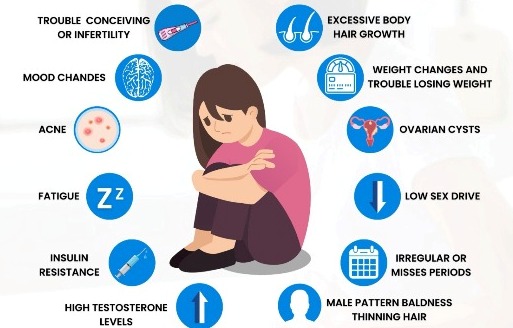
Uterine Cysts:
Uterine cysts, also known as uterine fibroids or myomas, are non-cancerous growths that develop in the uterus. Naturopathy and Ayurveda, ancient holistic healing systems, offer insightful perspectives on managing uterine cysts naturally.
Symptoms of Uterine Cyst:
Uterine cysts may manifest various symptoms, including pelvic pain, menstrual irregularities, discomfort during intercourse, and changes in bladder habits. Some individuals may experience bloating or pressure in the lower abdomen. While some cysts may not cause noticeable symptoms, it’s crucial to seek medical evaluation if you suspect any issues with your reproductive health. Naturopathy and Ayurveda offer holistic approaches to support uterine health and overall well-being. Always consult with healthcare professionals for a thorough diagnosis and personalized treatment plan.
Causes of Uterine Cyst:
Uterine cysts, or fibroids, develop due to a complex interplay of factors. Hormones, particularly estrogen and progesterone, play a key role in their growth. Genetic predisposition and family history increase the risk. Ethnicity, with higher prevalence among African-American women, age (common during reproductive years), obesity, dietary habits, lifestyle factors, early menstruation, and certain birth control pills are linked. Pregnancy-related hormonal changes can influence growth. While the exact cause is unclear, these factors contribute to the development of uterine cysts.
Understanding Uterine Cysts:
From a naturopathic standpoint, uterine cysts are often associated with hormonal imbalances, particularly excess estrogen. This hormonal disruption can result from factors like stress, poor diet, and environmental toxins. Ayurveda, on the other hand, attributes uterine cysts to a disturbance in the balance of doshas, primarily an aggravation of Vata and Kapha doshas.
Naturopathic Approaches:
Hormonal Balance: Naturopathy emphasizes restoring hormonal balance through dietary changes, stress management, and lifestyle modifications. This may involve incorporating hormone-balancing foods, such as cruciferous vegetables, flaxseeds, and turmeric, into the diet.
Detoxification: Naturopaths advocate for detoxification to eliminate toxins that contribute to hormonal imbalances. Detox methods may include fasting, herbal cleanses, and therapies like hydrotherapy and saunas.
Nutritional Support: A nutrient-dense, whole-foods-based diet is essential in naturopathic treatment. Supplements like vitex (chaste tree), DIM (diindolylmethane), and omega-3 fatty acids may be recommended to support overall reproductive health.
Ayurvedic Approaches:
Dosha Balancing: Ayurveda employs a personalized approach to balance doshas. Vata-pacifying measures may include warm, nourishing foods, while Kapha-pacifying practices involve promoting circulation and warmth.
Herbal Remedies: Ayurvedic herbs like Ashoka, Shatavari, and Guggulu are known for their uterine health benefits. These herbs are believed to address dosha imbalances and support the body’s natural healing mechanisms.
Abhyanga (Oil Massage): Regular self-massage with warm sesame oil is a common Ayurvedic practice to alleviate Vata imbalances, promoting relaxation and hormonal harmony.
Holistic Lifestyle Recommendations:
Both naturopathy and Ayurveda emphasize lifestyle adjustments:
Stress Management: Chronic stress contributes to hormonal disruptions. Mind-body practices like yoga, meditation, and deep breathing exercises are integral to both systems.
Regular Exercise: Physical activity supports overall well-being and can help manage weight, a factor influencing hormonal balance.
Mindful Eating: Choosing whole, nutrient-rich foods and avoiding processed items aligns with both naturopathic and Ayurvedic principles.
Conclusion:
Uterine cysts can be effectively managed through a holistic approach that integrates naturopathic and Ayurvedic principles. By addressing hormonal imbalances, detoxifying the body, and embracing lifestyle modifications, individuals can support their reproductive health naturally. Always consult with qualified practitioners for personalized guidance based on your unique health needs.




Be the first to comment